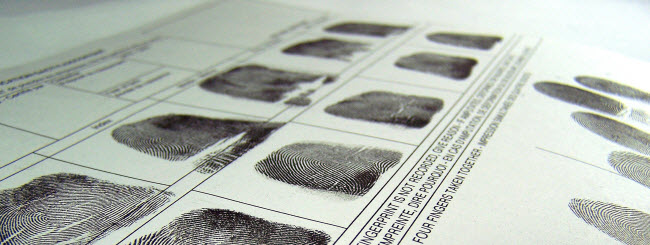Plans were already underway for months, but in May 2013, the U.S Senate voted to speed up the implementation of airport fingerprinting. Under the new bill, foreigners entering and departing from US seaports and airports will have their pictures taken and fingerprints scanned. The new measure is an effort to increase the nation’s border security, as current measures are restricted to only foreigners as they enter the country.
The legislation calls for the urgent installation of the new biometric recording system at the ten busiest airports within the next twenty-four months. Once in place, it will affect foreigners from all but 28 countries (most of which are European).
According to a Homeland Security spokesperson, this new drive allows custom officials to collect and compare inkless fingerprints against the country’s national database for a possible match with any known terrorist – a process that is expected to take less than 20 seconds.
The new finger printing system may not completely insulate the nation from external threat, but it will certainly make it much more difficult for criminals and terrorists to sneak in and out of the country. It will also help the government track foreigners and illegal immigrants more effectively.
The data compiled through this screening process will be securely stored in a database, accessible only to law enforcement officials on what is being described as a “need to know” basis. But some people are already questioning the legitimacy behind the idea…
The Question of Rights Violation
Will the new fingerprinting violate individual rights from an ethics standpoint? Some people seem to think so. In a government where parts of the senate is proposing increased censorship measures on the internet, the latest introduction is seen by some as yet another incursion into the fundamental rights of the citizens.
In the past, fingerprinting was only restricted to criminals and individuals who had fallen on the wrong side of the law. However, with this new measure, law enforcement agencies will now have access to a database that contains the information of millions of foreigners who live around the world. In addition to fingerprints, the digital data is likely to include such information as the individual’s name, date of birth and legal status.
To the government that is insignificant, but to others, this amounts to handing law agencies a treasure trove that they do not need – or, even worse, one that they will misuse.
Another concern raised by critics is the efficiency of the fingerprinting technology. Current estimates put the accuracy of automatic fingerprinting at 90%. In many cases, the system has difficulties getting clear fingerprints, which may compromise the very security that it is designed to protect. Critics argue that forcing travelers to have their fingerprint taken may end up making most people to feel like criminals.
The US is not the first country to introduce this measure. In fact, given the sensitive position that the country finds itself in the war against terrorism, it is behind other developing nations in implementing this particular technology. In 2008, the British government launched the use of airport fingerprinting at the Heathrow Airport. In addition to foreigners, the law also applied to British citizens exiting the country. This security measure was accompanied by passenger photographs, which were then added to the database.
Like the U.S, the initial introduction of this new security measure generated a lot of controversy, with many complaining about the perceived violation of their rights. However, as time went by, the general discomfort eased and the security measure is now grudgingly accepted by most. Part of this was due to initiatives introduced by the British government. To encourage the acceptance of fingerprinting, the government offered incentives and bonuses for citizens who voluntarily offered to be fingerprinted at the airport.
So Are There Any Benefits to Fingerprinting?
Does airport fingerprinting offer any benefits? The honest answer is yes – several in fact. As security experts have correctly pointed out, without these biometric checks in place, stopping the movement of illegal immigrants or criminals becomes extremely difficult. Criminals can (and do) bypass border controls at airports by altering their appearance. In some cases, wanted criminals have been able to avoid capture even with custom officials on high alert.
Even the critics of the proposed fingerprinting system agree that something assertive has to be done about tightening the nation’s borders. A few have suggested a modification of the current fingerprinting system, where, instead of fingerprinting every passenger, immigration officials can simply routinely fingerprint passengers whenever they look suspicious. However, this approach may lead to reported cases of profiling – something that the current government is trying to prevent.
The Near Future
Regardless of the issues raised by some, it is highly unlikely that airport fingerprinting will be scrapped. Instead, what is more likely is that it will go on to become adopted by other countries. Within the next three decades – especially with the recent introduction of biometric passports – the world may be connected by a global database, capable of tracking travelers as they move between countries. In the end, what matters most will be the results.
There is no denying the benefits offered by this new legislation. At the very least, the proposed legislation would give the millions of immigrants the opportunity to become citizens, as – in addition to the crack-down on airport security – the legislation also proposes the creation of a new visa program specifically designed for low-skilled workers. It may not be the most effective security measure available, but the biometric screen appears to be the best option we have right now.




